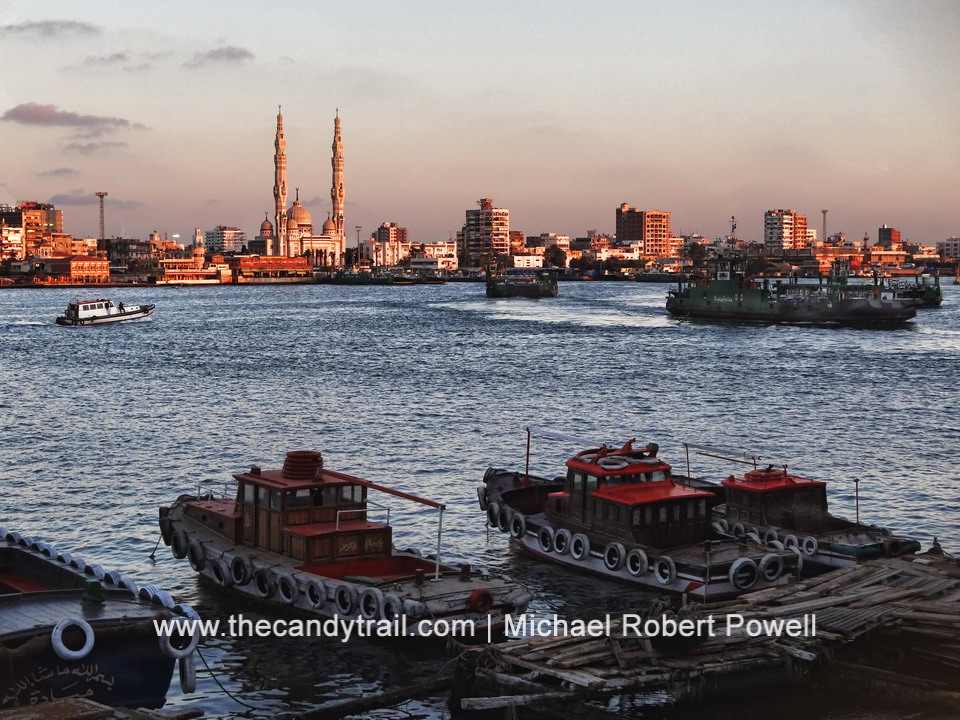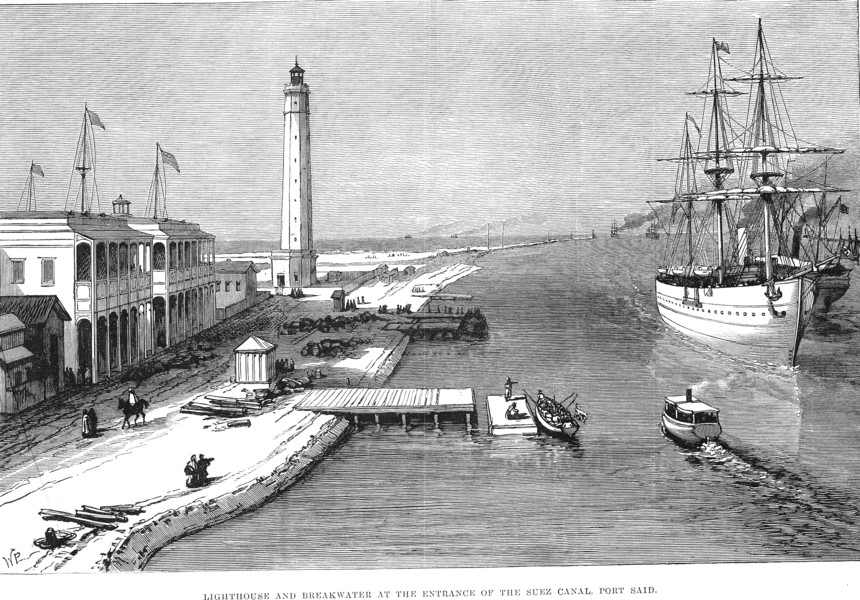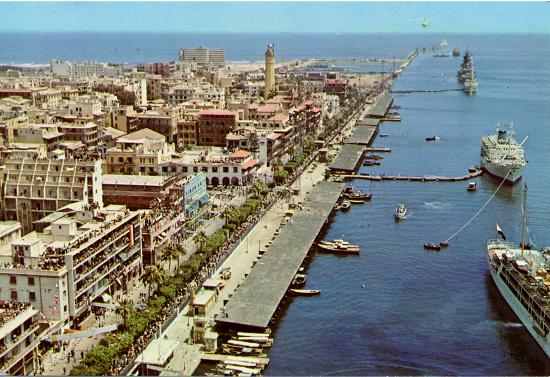Named after Khedive Said who approved the project in question, Port Said witnessed one of history’s most groundbreaking moments, the digging of the Suez Canal. Believed to have been inspired by unfinished construction plans by Napoleon 1st, and even before him by possible initial diggings during Ancient Egyptian times, it was Ferdinand De Lesseps who led to its realisation.
The aspiration behind it was always that of the construction of a canal connecting the Mediterranean to the Red Sea, cutting out the long journey it used to take to navigate around Africa to reach Europe, or Asia. De Lesseps was the organizer of the political and financial backbone behind the project which started its construction in April 1859, until the official opening of the Suez Canal in November 1869, with Port Said on one side of the canal and Port Fouad on the other.
A historical city
Memorials and tombs of martyrs and soldiers are scattered around the city. Port Said in its very short lifetime faced 4 different wars: the 1956 Suez War with France, England & Israel; the 1967 Six-Day War with Israel; the War of Attrition with Israel between 1987 and 1973 and finally the Arab-Israeli War of 1973.
The city’s historic sacrifices were greatly acknowledged and quoted by Anwar Al Sadat, who granted as a reward and as part of his Open-Door policies the Port-Said Free Zone, which was full of new hopes for the city and its development.
The great statue of De Lesseps, which was part of the grand inauguration of the Canal, was removed from the entrance of the Suez Canal during Nasser’s era as a symbol of decolonisation and independence.
One of Egypt’s forgotten treasures
After it’s nationalisation in 1956, it was inevitable that the Suez Canal was going to be of great strategic importance for Egypt. Bringing in over US$ 5 billion of revenues annually, it should have taken a salient place in Egyptian politics ever since.
It is believed however that since Mubarak was targeted for assassination by a local during his visit to Port Said in 1999, he sanctioned the city harshly. Since then, authorities regularly refuse to allocate enough funding for the infrastructure and development of the city. Corruption and lack of any control on the port have led the city into extreme poverty and degradation.
A large threat is also present towards the city’s architectural heritage and old buildings, many of which reminding Egypt of its old diverse cultural face of the 1929’s. Many campaigns and protests have emerged throughout the years to stop the illegal and unreasonable demolitions.
Since the government’s continual neglect, in 2012 the Port-Said based French Cultural Association has approached UNESCO by registering as many buildings as possible. Still, until recent months, beautiful residential Villas behind Port Fouad’s Amun Suez Canal School are being brought down.
Pictures of Port Said and Port Fouad today when compared to pictures dating only 30 years ago show the gravity of the city’s situation.
New government, new projects
As stated in a televised announcement, an extension will be added to Egypt’s historic Suez Canal. Ex-navy commander Mohab Mamish replaced Ahmed Fadel as chairman of Suez Canal Authority in 2012 by former president Mohamed Morsi. Mamish stated that the “project will lead to the creation of a new Suez Canal parallel to the current channel of a total length of 72 kilometres”, costing about US$ 8 billion.
President Abdel Fatah Al Sisi also declared that the project would be completed within a year, urging Egyptians to invest and hold shares within the project, giving it a national and positive perspective. A new industrial and logistics hub is also part of the project, widening the variety of new jobs to be created.
As a historically huge part of Egypt’s economy and international face in world trade, it is important for Egypt’s new government to bring back the Suez Canal at the heart of its politics. The degradation of Port Said has indeed raised many alarms for the past few years however this new project brings new hopes for not just the future of the city of Port Said, but also for the future of Egypt’s economy and trade.










Comments (8)
xcn5bsn5bvtb7sdn5cnvbttecc
[…]Sites of interest we have a link to[…]
ccn2785xdnwdc5bwedsj4wsndb
[…]we came across a cool website that you could get pleasure from. Take a look in the event you want[…]